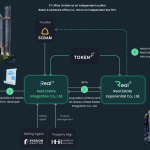In February, Zillow’s housing economists predicted that US home prices would rise 0.5% in the next 12 months. However, US home prices have since reached a new all-time high, driven by tight inventory levels. Zillow has revised its forecast upward, now predicting that US home prices will rise 6.5% between July 2023 and July 2024.
Zillow economists say that the limited supply of homes for sale is pushing prices up, even as mortgage rates remain elevated. In July, there were just over half as many homes listed for sale as in July 2019. This shortage has led to bidding wars and quick sales. Homes that went under contract in July did so in 12 days, a week and a half faster than in 2018 and 2019.
Zillow’s forecast model predicts that 120 of the nation’s 400 largest housing markets will see home price increases of 7.0% or greater over the next 12 months. These markets are located all over the country, including the West (like Santa Maria, California), South (like Tampa, Florida), Midwest (like Indianapolis, Indiana), and Northeast (like Scranton, Pennsylvania).
Not all economists agree with Zillow’s prediction. Moody’s Analytics and Morgan Stanley believe that US home prices will fall slightly before the end of 2024. However, Zillow economists are confident that the housing market has bottomed out and that prices will continue to rise.
Here are some additional things to keep in mind when considering Zillow’s forecast:
- The forecast is based on a number of assumptions, including the future path of mortgage rates and the level of inventory. If these assumptions change, the forecast could also change.
- The forecast is for the national average. Individual housing markets may experience different price trends.
- The forecast is for the next 12 months. It is possible that prices could rise or fall more or less than 6.5% over this period.
Overall, Zillow’s forecast suggests that the US housing market is still in a strong position. However, it is important to remember that the market is constantly changing and that any forecast is subject to uncertainty.
US Home Prices and US Equity Indexes: How Are They Related?
The US housing market and the US equity market are two of the most closely watched markets in the world. Both markets have been on a tear in recent years, with home prices and stock prices reaching record highs. But what is the relationship between these two markets?
There is a strong correlation between US home prices and US equity indexes. This means that when one market goes up, the other market is likely to go up as well. This correlation is due to a number of factors, including:
- Low interest rates: Low interest rates make it more affordable for people to buy homes and stocks. This increases demand for both assets, which drives prices up.
- Economic growth: Economic growth creates jobs and raises incomes, which also increases demand for housing and stocks.
- Investor sentiment: When investors are bullish about the economy, they are more likely to invest in both housing and stocks.
However, there are also some factors that can cause the relationship between US home prices and US equity indexes to break down. These include:
- Changes in interest rates: If interest rates rise, it will become more expensive to borrow money to buy a home or invest in stocks. This could lead to a decline in demand for both assets.
- A recession: A recession can cause a decline in both home prices and stock prices. This is because a recession leads to job losses and lower incomes, which reduces demand for both assets.
- Changes in investor sentiment: If investor sentiment turns bearish, it could lead to a decline in demand for both housing and stocks.
Overall, the relationship between US home prices and US equity indexes is strong, but it is not unbreakable. There are a number of factors that can cause the relationship to break down.
Here are some additional things to keep in mind when considering the relationship between US home prices and US equity indexes:
- The relationship is not always linear. There have been times when home prices have risen while stock prices have fallen, and vice versa.
- The relationship is not always immediate. It can take some time for changes in one market to be reflected in the other market.
- The relationship is not always symmetrical. The impact of a change in one market on the other market may not be the same in both directions.
Despite these limitations, the relationship between US home prices and US equity indexes is an important one to understand. By understanding this relationship, investors can make better decisions about where to allocate their money.
Shayne Heffernan









